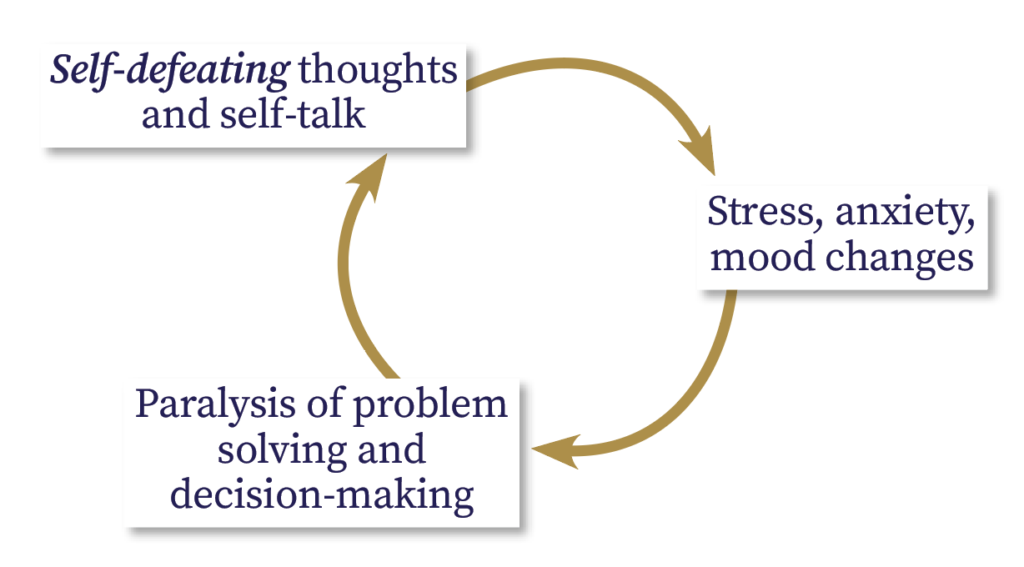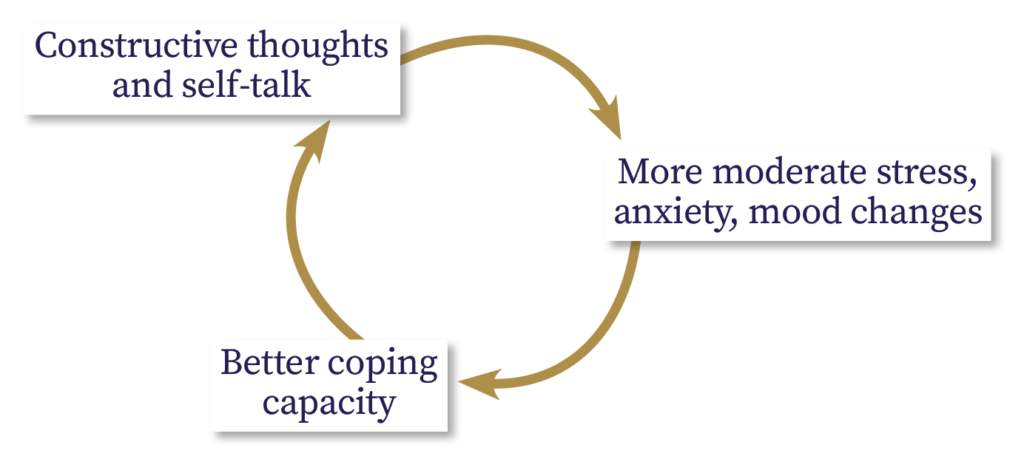Managing Repetitive Thinking is a 16 page downloadable resource available here.
How and why this way of thinking creates difficulties for us.
Repetitive thinking or rumination describes a pattern of thinking that is circular with a tendency to intensify – going over and over something in our mind, such as an incident, a problem, something someone said, a particular thought or experience.
Managing Repetitive Thinking
The problem with this kind of thinking is that even if we suspect it is less than accurate, or even incorrect, the more it is repeated in our mind the more it seems to be true. Such thinking can also become obsessive and can cause significant distress. If rumination occurs before trying to get to sleep or when we wake in the night, it can cause a significant disruption of our sleep.
Rumination is often associated with various forms of anxiety and depression and, if left unchecked, can keep these difficulties in place and make them much less amenable to being resolved.
How we think about and interpret the things that happen in our lives (things that challenge us, threaten us, make demands on us, or that seem to put us in a particular light) has a huge bearing on how much stress and anxiety we experience, and on changes to our mood and emotions. How we think about and interpret all the events of our lives (and the conversation we then tend to have with ourselves in our mind – self-talk) can frequently be unhelpful and self-defeating, rather than merely neutral or helpful and constructive.

Self-defeating thoughts, interpretations (and self-talk) can escalate stress and anxiety, cause changes in mood, and paralyse our attempts at solving problems and making decisions. Together these can become a vicious cycle.

Constructive thoughts, interpretations (and self-talk) help us to keep stress and anxiety at much healthier levels – levels that promote a buoyant mood and permit and promote positive coping.






